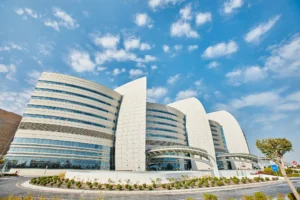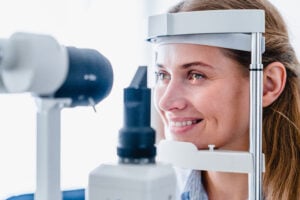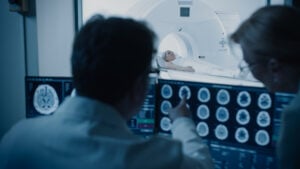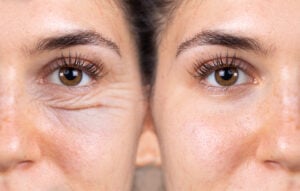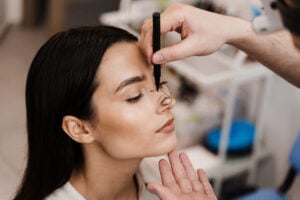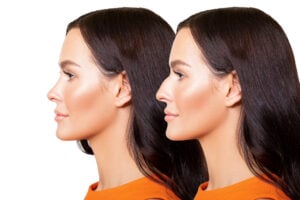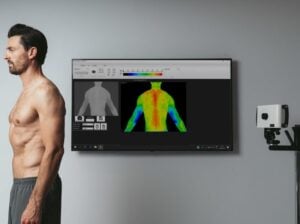There is nothing more exciting than traveling to places where you have never been to before. You’re about to embark on a new palette of experiences, colours, sights, sounds, tastes, and smells. But this idyllic picture can quickly turn to disaster if you are not prepared for the strange things that could go wrong along the way.
One pitfall is pollution. No matter where you go, you will be exposed to new bacteria and particles. This pollution can have detrimental effects on your health if not dealt with sufficiently. So, the next time you are about to step on a plane, be prepared with these 10 tips for medical survival.
1. Always Follow The 3 “Ps”
The Centres for Disease Control and Prevention advises travellers to be:
- Proactive. Thoroughly research your destination and prepare a medical portfolio. Travel insurance is also encouraged.
- Prepared. Get a check-up from your family doctor before you hop onto a plane. Your GP will give you the all-clear and will also make sure you are up to date with the necessary vaccinations. Keeping a first-aid kit close at hand is also always advised and as an extra precautionary measure, share your travel plans with others in case you lose contact during emergency situations.
- Protected. Protect yourself whilst travelling by making responsible decisions. Limit the use of alcohol and always buy your food and water from reputable sources.
2. Keep Air Pollution in Mind
There are severe cases of air pollution in certain industrialized countries and in worst cases, even the surrounding areas are being affected. You should always keep the following in mind:
- Short-term travellers will not be as badly affected by air pollution (unless you have an underlying medical condition such as asthma).
- A good idea is to check the air quality of your destination by visiting the AirNow website or by downloading similar applications.
- If you know that you will be visiting a heavily polluted area, keep a few surgical masks at hand and then wear them often.
- Be aware of indoor air pollution caused by tobacco smoke and resources used for cooking (such as oils, coal, kerosene, gas, etc.)
- If you are in a heavily polluted area, consider keeping exercise to a minimum. Exercise could only enhance the effects the pollution is having on your body.
3. Pay Caution to Mould
This is not generally the type of pollution to be concerned about but it still does open room for concern – especially if you plan on visiting areas that have previously been affected by floods. Mould contamination:
- Is a serious hazard for people with respiratory diseases or who are immunocompromised
- If you are in a mould-contaminated area, wear a surgical mask to avoid inhaling the dangerous spores.
4. Be Water-Wise
Water can be a significant source of bacterial pollution and if you are traveling, we suggest you stick to bottled water only (preferably from an established source). Waterborne diseases include cholera, cryptosporidium, dysentery, gastroenteritis, giardiasis, diarrhoea disease, guinea worm, Hepatitis E and Typhoid Fever – these diseases want to be avoided at all costs.
Apart from only drinking bottled water, we also advise you to:
- Carry a portable water purifier, you can find some great options reviewed here
- Carry water-sanitation tablets in your luggage if bottled water is not always an option.
- Avoid ice-cubes (these are normally made with local water).
- Avoid swimming in rivers or pools that could be polluted with schistosomiasis or leptospirosis.
5. Eat Seafood with Care
When we travel to exotic locations, then it’s custom to indulge in a delicious plate of seafood. But if your fish is undercooked or tastes metallic, peppery or bitter – then we urge you to put it down!
- Ciguatera is caused by eating fish contaminated with toxins. These fish are mostly found in the Caribbean and the Indian and Pacific oceans. Nausea, vomiting, stomach pains, diarrhoea, and neurologic symptoms occur within three hours after eating polluted fish and if you do not have access to immediate medical treatment, the effects can be lethal.
- Scombroid occurs when you eat fish with high levels of histamine. Histamine arises when fish has not been refrigerated properly. The symptoms present themselves as an allergic reaction that can be treated with antihistamines.
6. Pay Attention to Everything You Eat
Foodborne pollution is everywhere and while seafood can be dangerous, so too can any meal – especially when the dish is unfamiliar to you. When it comes to filling up on grub, we advise you to:
- Ask the locals for recommendations on where to buy the best and healthiest food.
- Make sure that the stands you buy from are clean.
- Stick to thoroughly cooked food and avoid homemade beverages unless they are prepared hygienically in front of you (i.e. juicing).
7. Recognise That Radiation Is Real
Radiation poison is rare but in some countries, the warnings are higher than others. Ukraine and Japan, for example, do have higher levels of radiation. Our advice in this regard is to:
- Contact the local embassy for guidelines.
- Watch out for clearly demarcated warnings (and take these warnings seriously)
8. Brush Up on Self-Help Remedies and Know When to Get Professional Help
In an effort to help you to feel better in dire situations, we advise you to remember these self-help remedies:
- Gastric symptoms can often be relieved by eating a grated apple, drinking ginger ale and peppermint tea, or by consuming an Oral Rehydration Solution.
- Flush toxins with clean boiled water and stay hydrated.
- Keep an inhaler and steroids close by if you suffer from respiratory issues.
- Azithromycin is a popular choice of antibiotic for foodborne illnesses, so get some from your doctor for your first aid kit before you leave home.
- Steam your airways at night with a few drops of eucalyptus oil – this will help to get rid of invading pollutants.
If your symptoms are severe, we urge you to seek immediate professional medical attention. Your options are to:
- Ask locals to point you in the direction of the nearest hospital or clinic.
- Contact the local embassy or your travel insurance provider for advice on medical care.
- Download an app that will directly connect you with medical services closest to you.
9. Steer Clear of Counterfeit Medicines
Medication can differ significantly between countries, even if the brand is the same. This is why it’s better to travel with your own medicine than purchasing it from an unfamiliar country. If you are desperate and don’t have the necessary medicine on hand, then we advise you to steer clear of buying counterfeit products. Before purchasing medicine in a foreign location, make sure to:
- Only buy from licensed pharmacies and hospitals.
- Check the packaging and printing for quality and sell-by dates
- Only use medication that’s provided in its original packaging
- Check with your host or embassy on where to get safe medication
10. Use Telemedicine Apps
Telemedicine has grown exponentially in the last five years and several health services and travel risk insurance companies encourage tourists to take advantage of this new technology. There are many innovative new providers out there and one such is Push Doctor in the UK.
When using Telemedicine, it’s worth your while to:
- Sign up for the service prior to travelling, if this is an option
- Sign up to a VPN to securely communicate medical information
- Select options that include Doctor Care Anywhere or have International SOS.
Basic awareness, knowledge, and proactive preparation can help you to have a stress-free travel experience despite pollution risks. We always encourage safe travels!

